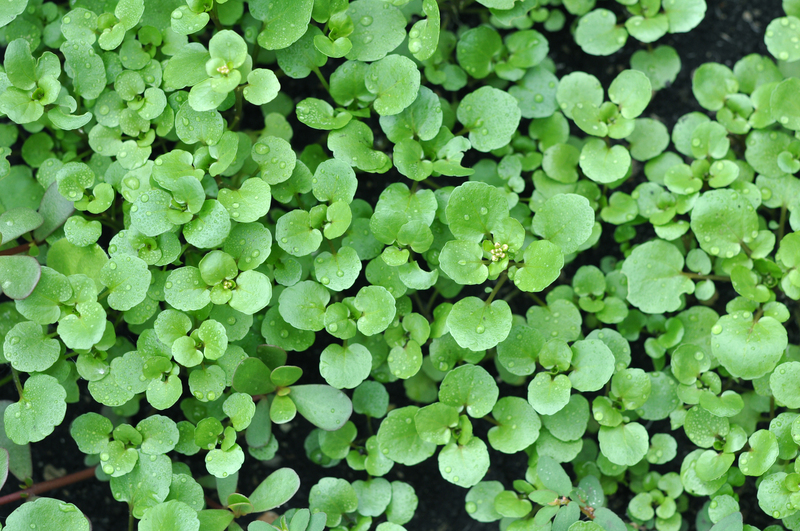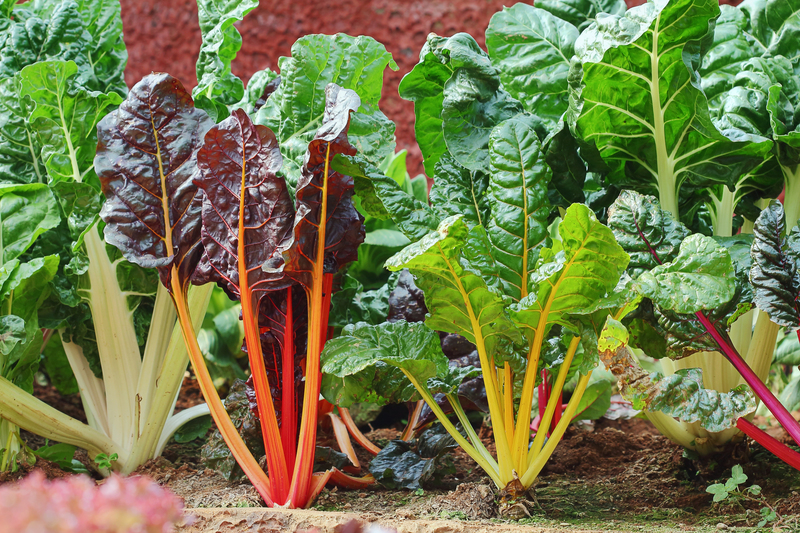How to Become a Garden Guru: 9 Beginner's Tips
Posted on 24/05/2025
How to Become a Garden Guru: 9 Beginner's Tips
Do you dream of lush green spaces, vibrant blooms, and harvesting tasty vegetables from your backyard? Becoming a garden guru starts with laying down the roots of good gardening habits. Whether you aim for ornamental flower beds, thriving vegetable patches, or charming indoor jungles, this comprehensive guide covers everything you need to know as a beginner gardener. Explore these 9 expert-backed tips to start your journey, avoid common mistakes, and create the garden paradise you've always wanted.
1. Know Your Garden Environment
Every successful gardener starts by understanding their natural habitat. Before planting anything, it's essential to get to know your garden's unique environment. This foundational step sets you on the path to becoming a true gardening expert.
Assess Your Zone and Climate
- Identify Your Hardiness Zone: Use the USDA Hardiness Zone Map (or your local equivalent) to determine which plants suit your climate year-round.
- Track Sunlight Patterns: Spend a day observing which parts of your garden get full sun, partial sun, or shade--this informs your plant choices.
- Check Soil Condition: Test for soil pH, drainage, and texture. Whether you're planting in clay, loam, or sandy soil affects how plants grow.
Garden Guru's Tip: Start a garden journal to record your site's characteristics, noting changes across seasons. This habit distinguishes true plant experts.

2. Select the Right Plants for Beginners
It's tempting to try everything at once, but successful gardens begin with the right, easy-care choices. The most effective path to becoming a master gardener is by matching plants to your time, space, and level of commitment.
Best Plants for New Gardeners
- Herbs: Basil, mint, parsley, and chives are forgiving and thrive in small gardens or pots.
- Vegetables: Lettuce, radishes, and bush beans grow quickly and are satisfying first choices.
- Flowers: Marigolds, sunflowers, and zinnias provide color while attracting pollinators.
- Houseplants: Snake plant, pothos, or spider plant for those starting indoors.
Choose plants labeled as "easy-care" or "drought-tolerant" while you build your knowledge. Ask for advice at your local nursery; their expertise can help you make informed choices.
3. Invest in Quality Tools (and Learn How to Use Them)
Gardening doesn't require expensive or complex equipment--but a few well-chosen, quality tools can make your work much easier and more enjoyable. Here are the essentials every beginner should have:
- Hand Trowel: Perfect for digging, transplanting, and scooping soil.
- Pruners or Secateurs: Essential for trimming branches, deadheading, and harvesting.
- Watering Can or Hose: Choose one with a gentle rose head to avoid disturbing soil and young plants.
- Garden Gloves: Protect your hands from blisters, thorns, and rough soil.
- Rake and Fork: Helps with soil preparation, weeding, and gathering leaves.
Pro Tip: Clean and store your tools after use--a little maintenance goes a long way. Well-cared tools are the secret of a future garden master.
4. Master the Art of Soil Preparation
The secret behind every successful garden is healthy soil. Soil quality directly influences plant growth, water retention, and disease resistance. Becoming a garden guru means knowing how to improve your soil naturally.
Steps to Optimize Your Soil
- Test Your Soil: Use a simple soil-test kit (available at most garden centers) to analyze pH, nutrient content, and texture.
- Amend as Needed: Add compost or well-rotted manure to increase fertility and structure. Clay soils benefit from sand; sandy soils benefit from organic matter.
- Mulch Your Beds: Mulching conserves moisture, suppresses weeds, and steadily feeds your soil.
- Avoid Over-Tilling: Too much digging can disrupt soil life; sometimes, less is more!
Insider's Advice: Healthy soil is living soil. Encourage earthworms and beneficial microbes--they're nature's best helpers in the garden.
5. Water Wisely: The Garden Expert's Approach
Watering seems straightforward, but proper technique is key to successful gardening. Over- or under-watering is a common mistake for beginners. Here's how to hone your green thumb like a pro:
Tips for Efficient Watering
- Water Early: Mornings are best, allowing moisture to reach roots while minimizing evaporation.
- Soak, Don't Sprinkle: Deep, less frequent watering trains roots to grow strong and resilient.
- Check Soil Moisture: Push your finger two inches into the soil; water only if it feels dry.
- Mulch Is Magic: Mulch retains moisture--even on hot days.
Remember: Different plants have different water needs. Learning to read their signals is a trait of a garden expert.
6. Start Small & Expand Gradually
Don't let enthusiasm lead to overwhelm! One of the best beginner gardening tips is to start small. Trying to tackle a sprawling plot can sap your motivation and lead to neglected plants.
How to Build Your Garden in Manageable Steps
- Begin with Containers or Raised Beds: These spaces are easier to control and maintain.
- Focus on a Few Favorite Plants: Gain confidence and learn what works in your environment.
- Expand Each Season: Add new beds, try new plant varieties, and watch your gardening skills grow.
Becoming a garden guru is a journey, not a sprint. Enjoy each stage and celebrate small wins along the way.
7. Learn to Observe and Respond
Observation is the most powerful tool for any gardener. Plants communicate their needs--spotting these signs early allows you to troubleshoot before bigger problems emerge.
Signs of Healthy vs. Stressed Plants
- Healthy Plants: Vibrant color, robust growth, blooms or fruits as expected.
- Unhealthy Plants: Yellowing leaves, stunted growth, wilting, or unusually spotted foliage.
- Insect Activity: Not all bugs are bad! Ladybugs and bees are beneficial; aphids or caterpillars may require action.
Action steps for garden mastery: Monitor regularly and keep records. Early detection means easy remedies!
8. Embrace Organic Methods and Sustainability
Modern garden gurus know that eco-friendly gardening isn't just a buzzword--it's vital for thriving gardens and a healthy planet. Begin with gentle, organic methods and learn the basics of sustainable care:
Simple Organic Gardening Strategies
- Compost Kitchen Waste: Start a compost pile or bin to recycle fruit, vegetable scraps, and garden clippings.
- Encourage Pollinators: Plant nectar-rich flowers and avoid chemical pesticides.
- Rotate Crops: In food gardens, alternate plant families each year to prevent disease buildup.
- Use Natural Pest Solutions: Neem oil, insecticidal soap, or companion planting can replace harsh chemicals.
Pro Gardening Tip: The best garden experts prioritize soil health and biodiversity above quick fixes--let nature's systems do the hard work in your garden.
9. Connect, Learn & Keep Growing
Even the most seasoned garden gurus started as beginners. Continuing education and staying connected with other gardeners supercharges your skills (and keeps inspiration high).
Ways to Nurture Your Gardener's Knowledge
- Join Gardening Communities: Whether forums, social media groups, or local clubs, connecting with others brings new tips, plant swaps, and camaraderie.
- Read Widely: Dig into gardening books, websites, and magazines--there's always something new to discover.
- Attend Workshops or Classes: Many nurseries and garden centers offer introductory courses for beginners.
- Follow Garden Influencers: Experts on YouTube or Instagram offer practical, real-world advice and creative ideas.
Never stop learning: The path to becoming a garden expert is lifelong and deeply rewarding.
Summary: From Beginner to Garden Guru in 9 Simple Steps
- Know your environment--climate, soil, and sunlight matter.
- Choose beginner-friendly plants for rewarding early success.
- Rely on quality garden tools and keep them maintained.
- Prioritize soil health--it's the foundation of your garden.
- Water thoughtfully and watch your plants thrive.
- Start small for manageability and growth.
- Observe, record, and adapt to what your plants tell you.
- Garden organically and sustainably for the environment and your health.
- Keep learning and connect with other gardeners.

Common Beginner Gardening Questions
How much time does it take to cultivate a garden?
Start with just 15-30 minutes a day for small gardens. As you learn and expand, you'll find gardening quickly becomes a rewarding hobby, not a chore.
How do I know if my plant is getting too much or too little water?
Consistently soggy soil combined with droopy, yellow leaves signals overwatering. Wilting and dry soil suggest underwatering. Observe and adjust based on your specific plants' needs.
What's the best month to start gardening?
Spring is ideal for most regions, but some hardy vegetables and flowers can be planted in autumn. Indoors, you can start year-round!
How do I keep pests and diseases away organically?
Focus on healthy soil, encourage natural predators, and use plant companions. Neem oil, insecticidal soaps, and hand-picking are beginner-friendly organic solutions.
When should I fertilize my plants?
Most plants benefit from light feeding in spring and mid-summer. Use natural fertilizers like compost, fish emulsion, or slow-release organic blends.
Conclusion: Cultivate Confidence, Grow Your Knowledge
Gardening is a journey packed with discovery, joy, and healthy habits. Your first step towards becoming a garden guru is simple curiosity--followed by hands-on practice and a willingness to learn from nature (and your mistakes!). Start small, nurture your soil and your skills, and let each season teach you something new.
Now is the perfect time to pick up a trowel and plant that first seed. With these 9 beginner's tips, you're well on your way to earning the title of garden guru--and enjoying years of abundant growth, beauty, and satisfaction.
Happy Gardening! May your roots grow deep and your flowers bloom bright!
Latest Posts
Create a Soul-Nourishing Herb Garden Oasis at Home
Mastering Wind Control for a Peaceful Garden Destination
Sustainable living through vertical gardening
Elevate Garden Spaces with Artistic and Functional Seating Ideas

